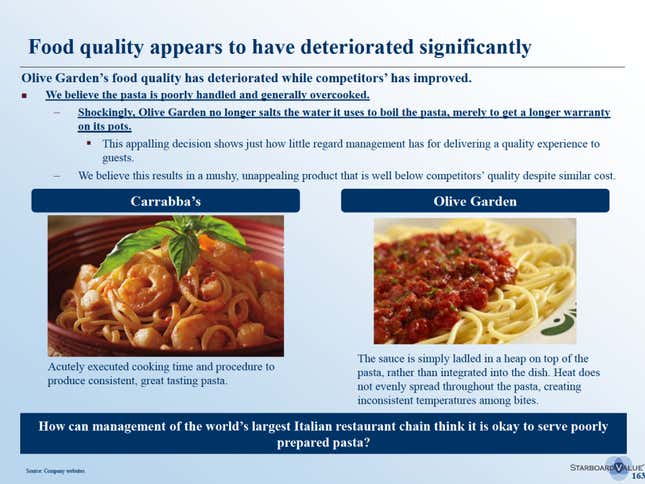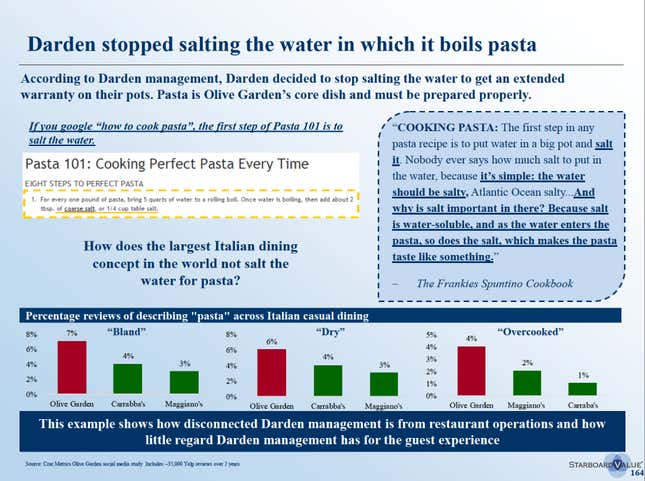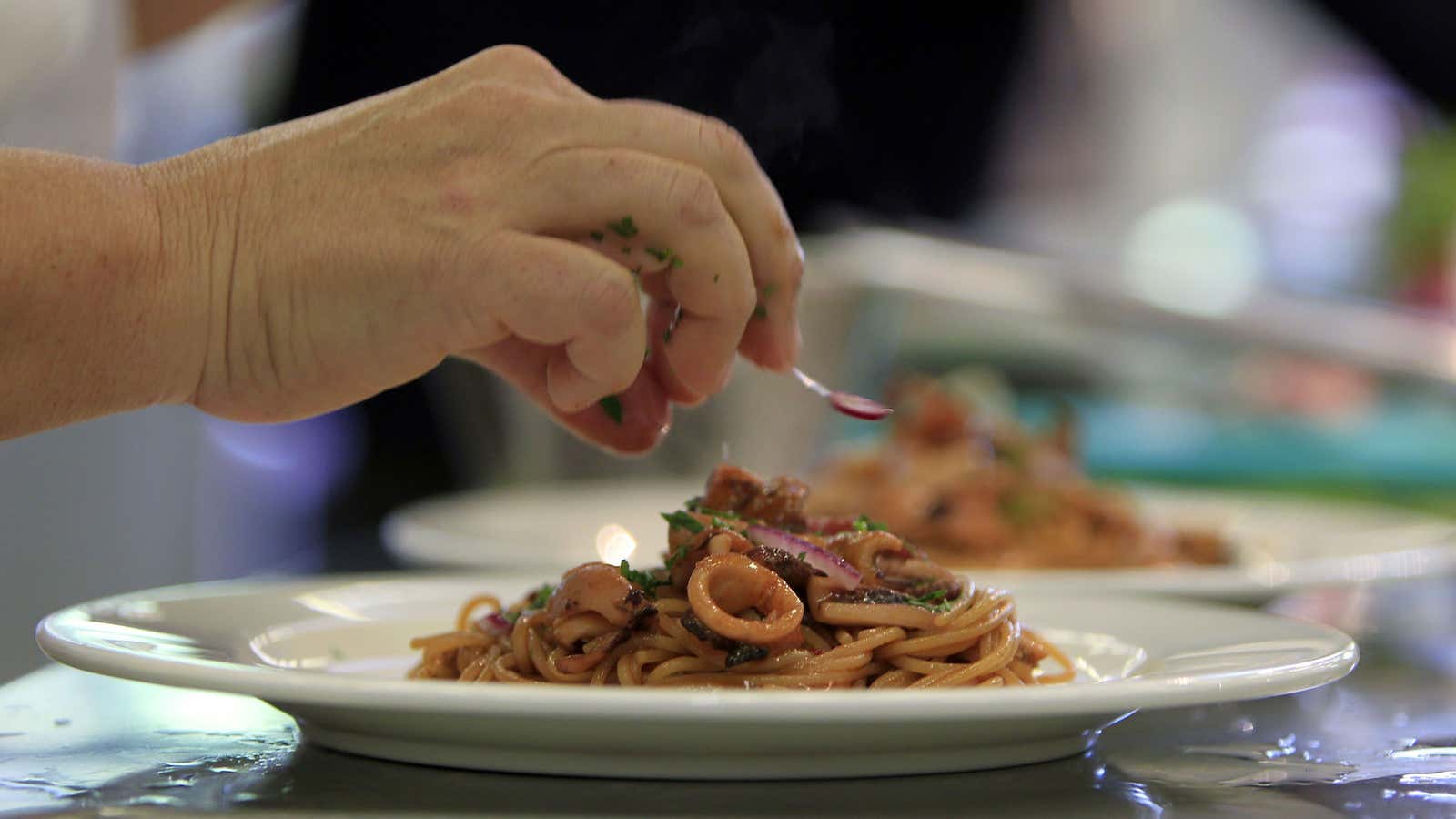It took a 300-page hedge fund report to tell Olive Garden that they had a big problem—there’s no salt in the pasta.

“Shockingly,” says the report, “Olive Garden no longer salts the water it uses to boil the pasta, merely to get a longer warranty on its pots.”
Shocking indeed. The Italian word for pasta that lacks salt—”sciocca”—also means “silly”. That should speak volumes.
The report, which was filed by activist hedge fund Starboard, says the chain made a business decision to stop salting its pasta. (Apparently, it enabled them to get an extended warranty on pots.)
“The first step in any pasta recipe is to put water in a big pot and salt it,” wrote Starboard analysts in their report.

Not so fast
While there is widespread consensus that salty water is a prerequisite for well-cooked pasta, the issue of when to add the salt remains highly contentions. In Italy, pretty much everyone has an opinion on whether salt should be added before or after the water boils. Here’s a quick summary of what the two factions believe.
Cold water salting
This has one obvious advantage: you don’t forget to add salt later on. But beyond that, cold-water salters say their approach is supported by science. They argue that adding salt, or sodium chloride (NaCl), creates a solution that enables the water to reach a higher boiling point. They argue that this higher temperature is optimal for cooking pasta.
Salt when boiling
This seems to be the most common approach to sodium management. Boiling-salters argue that waiting demonstrates attentive cooking. Furthermore, because water without salt boils faster, it saves time and energy.
The Answer
It pretty much doesn’t matter. As long as the salt is allowed enough time to dissolve into the water and penetrate the pasta, there is no ideal time to add salt. Yes, adding NaCl to water does raise its boiling point—but it’s an irrelevant 0.17°C per water liter. On the other hand, not adding salt until later does save time and energy, but not much. (One pasta-minded engineer’s experiments suggested it was less than a second.) In other words, it should be exceptionally easy for Olive Garden to return to the proper method of pasta-making.
